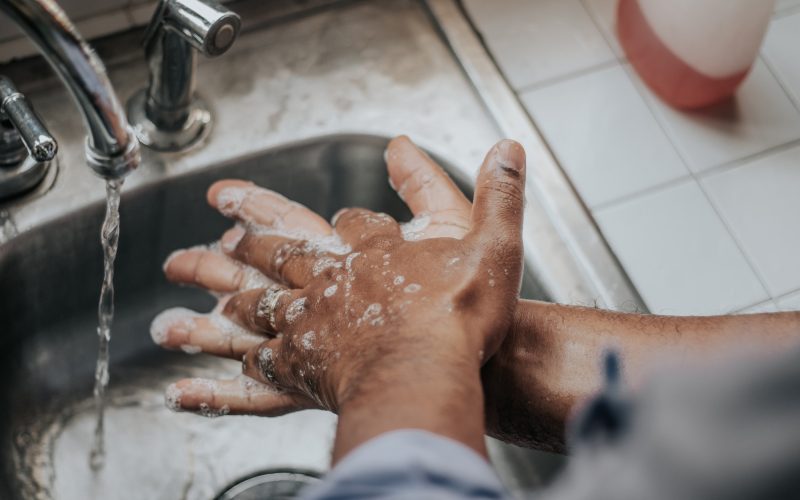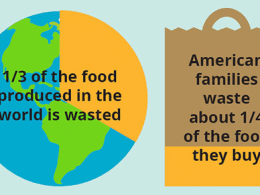Are you tired of constantly falling sick? Do you want to know the secret to maintaining good health and avoiding germs? Look no further than your own hygiene practices! From washing your hands regularly to sanitizing high-touch areas, proper hygiene is essential for preventing illnesses and staying healthy. Join us as we explore the importance of these simple yet effective habits that can make a big difference in keeping yourself and those around you safe from harmful bacteria and viruses. Get ready to say goodbye to sickness and hello to wellness with our guide on proper hygiene practices!
The Importance of Handwashing
One of the most important things you can do to prevent the spread of illness and infection is to practice proper hand hygiene. This means washing your hands regularly with soap and water, and using an alcohol-based hand sanitizer when soap and water are not available.
Handwashing is especially important before preparing food or eating, after using the restroom, after coughing or sneezing, and after coming into contact with any potentially contaminated surfaces. By washing your hands often, you can help reduce the spread of germs that can cause illness.
Alcohol-based hand sanitizers are also an effective way to clean your hands when soap and water are not available. Be sure to use a sanitizer that contains at least 60% alcohol for it to be effective. Apply the sanitizer to the palm of one hand and rub it all over the surface of both hands until they are dry.
The Importance of Sanitizing
It is no secret that proper hygiene is important for preventing the spread of disease. However, many people do not realize the importance of sanitizing in addition to handwashing. Sanitizing surfaces and objects that come into contact with food, such as countertops, cutting boards, and utensils, is essential for preventing the spread of foodborne illness. Additionally, it is important to sanitize hands after handling raw food or using the restroom.
While soap and water are sufficient for removing dirt and most bacteria from hands, sanitizers are necessary for killing viruses and other germs. Alcohol-based hand sanitizers are the most effective at reducing the number of germs on hands. It is important to use a hand sanitizer that contains at least 60% alcohol in order to be effective.
Sanitizing surfaces is also important for preventing the spread of disease. Hard nonporous surfaces, such as countertops and cutting boards, can be sanitized with a solution of 1 tablespoon of bleach per gallon of water. Porous surfaces, such as cutting boards made of wood or plastic, should be replaced if they become excessively worn or damaged as they can no longer be effectively cleaned and sanitized.
By following these simple tips, you can help prevent the spread of disease-causing bacteria and viruses.
The Different Types of Sanitizers
There are four main types of sanitizers: alcohol-based, quaternary ammonium compound-based, chlorine-based, and iodine-based. Each type has its own unique benefits and drawbacks.
Alcohol-based sanitizers are the most popular type of sanitizer. They are effective at killing a wide variety of microorganisms, including bacteria, viruses, and fungi. Alcohol-based sanitizers typically come in gel or spray form, and their efficacy is affected by both the concentration of alcohol and the amount of time that they are in contact with the surface being sanitized.
Quaternary ammonium compound (QUAT)-based sanitizers are another popular type of sanitizer. They work by disrupting the cell membranes of microorganisms, causing them to leak and die. QUATs are effective against a wide range of microorganisms, including bacteria, viruses, and fungi. However, they are not as effective against spores as other types of sanitizers. QUATs typically come in liquid form and can be used on both hard surfaces and fabrics.
Chlorine-based sanitizers are most often used in industrial settings due to their strong disinfecting power. Chlorine is effective against a wide range of microorganisms, including bacteria, viruses, fungi, and spores. However, chlorine can also be corrosive to some surfaces and can cause irritation to the skin, eyes, and respiratory tract. Chlorine
How to Properly Wash Your Hands
When it comes to preventing the spread of germs, proper handwashing is key. Here are some tips on how to properly wash your hands:
-Wet your hands with clean, running water (warm or cold).
-Apply soap and lather well. Be sure to lather the backs of your hands, between your fingers, and under your nails.
-Scrub your hands for at least 20 seconds. Need a timer? Hum the “Happy Birthday” song from beginning to end twice.
-Rinse your hands well under clean, running water.
-Dry your hands using a clean towel or air dry them.
How to Properly Sanitize Your Hands
Proper hand hygiene is one of the most important steps you can take to prevent the spread of illness and protect yourself and others. Whether you are at home, work, or out in public, it is important to know how to properly sanitize your hands.
The Centers for Disease Control and Prevention (CDC) recommends washing your hands with soap and water for at least 20 seconds, or using an alcohol-based hand sanitizer that contains at least 60% alcohol if soap and water are not available.
Here are some tips for proper hand hygiene:
Wash your hands often with soap and water for at least 20 seconds.
If soap and water are not available, use an alcohol-based hand sanitizer that contains at least 60% alcohol.
Avoid touching your eyes, nose, and mouth with unwashed hands.
Cover your coughs and sneezes with a tissue or your sleeve, not your hands.
Stay home when you are sick.
Conclusion
In conclusion, proper hygiene practices are essential for preventing the spread of germs and ensuring good health. Handwashing is one of the most effective ways to protect yourself from illness-causing microbes, but sanitizing can be just as important when it comes to safeguarding our well-being. It’s also important to remember that good hygiene habits need to become a part of your daily routine in order for them to have an effect, so don’t forget about these practices even when you’re away from home or work!












